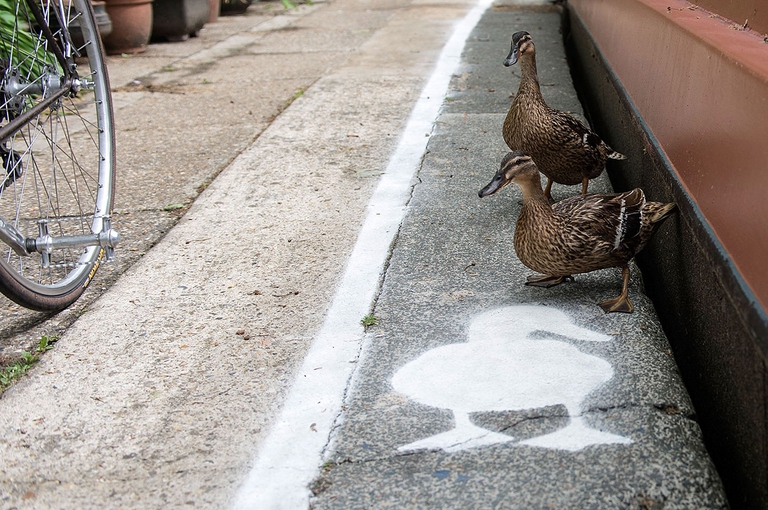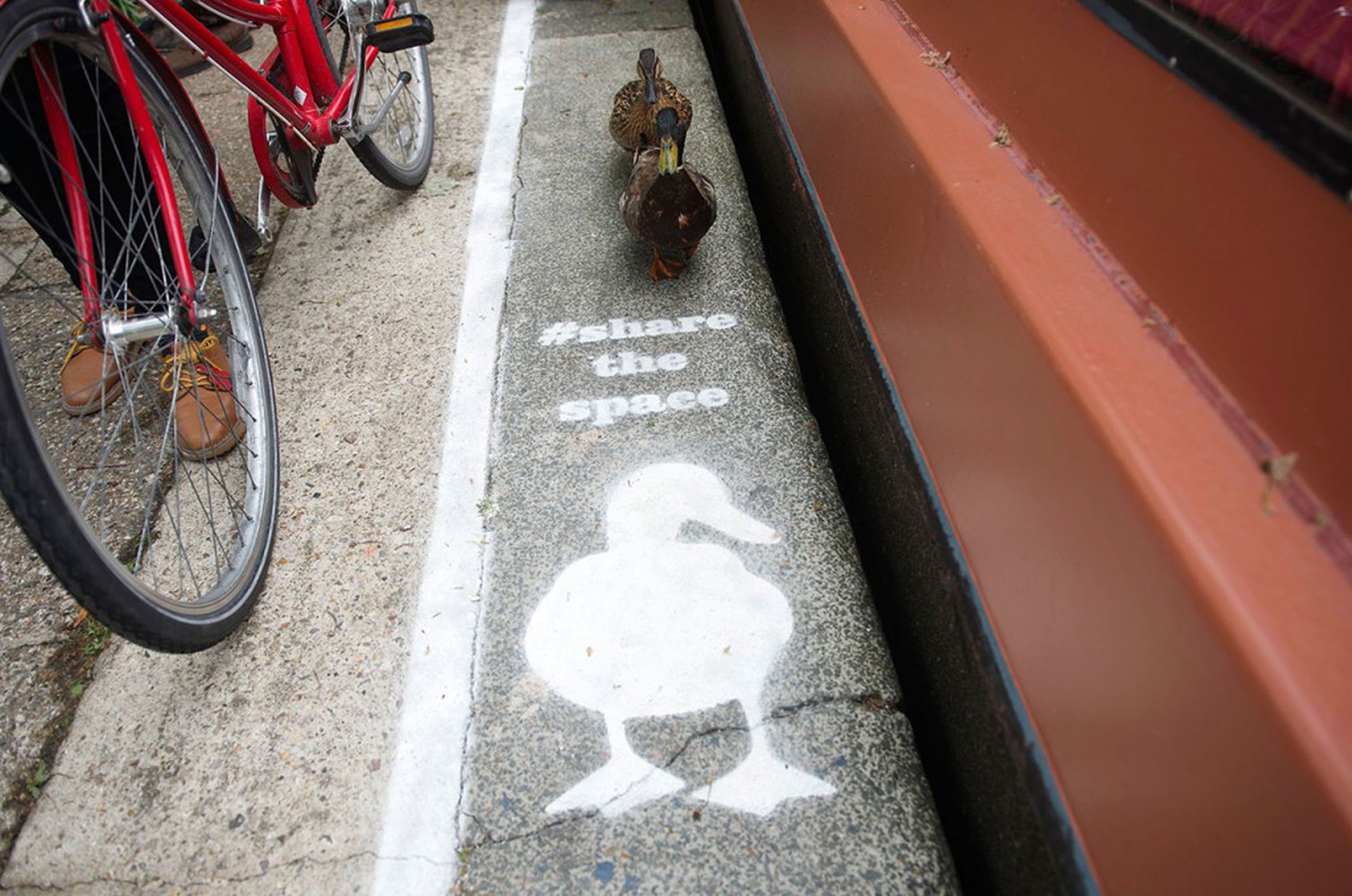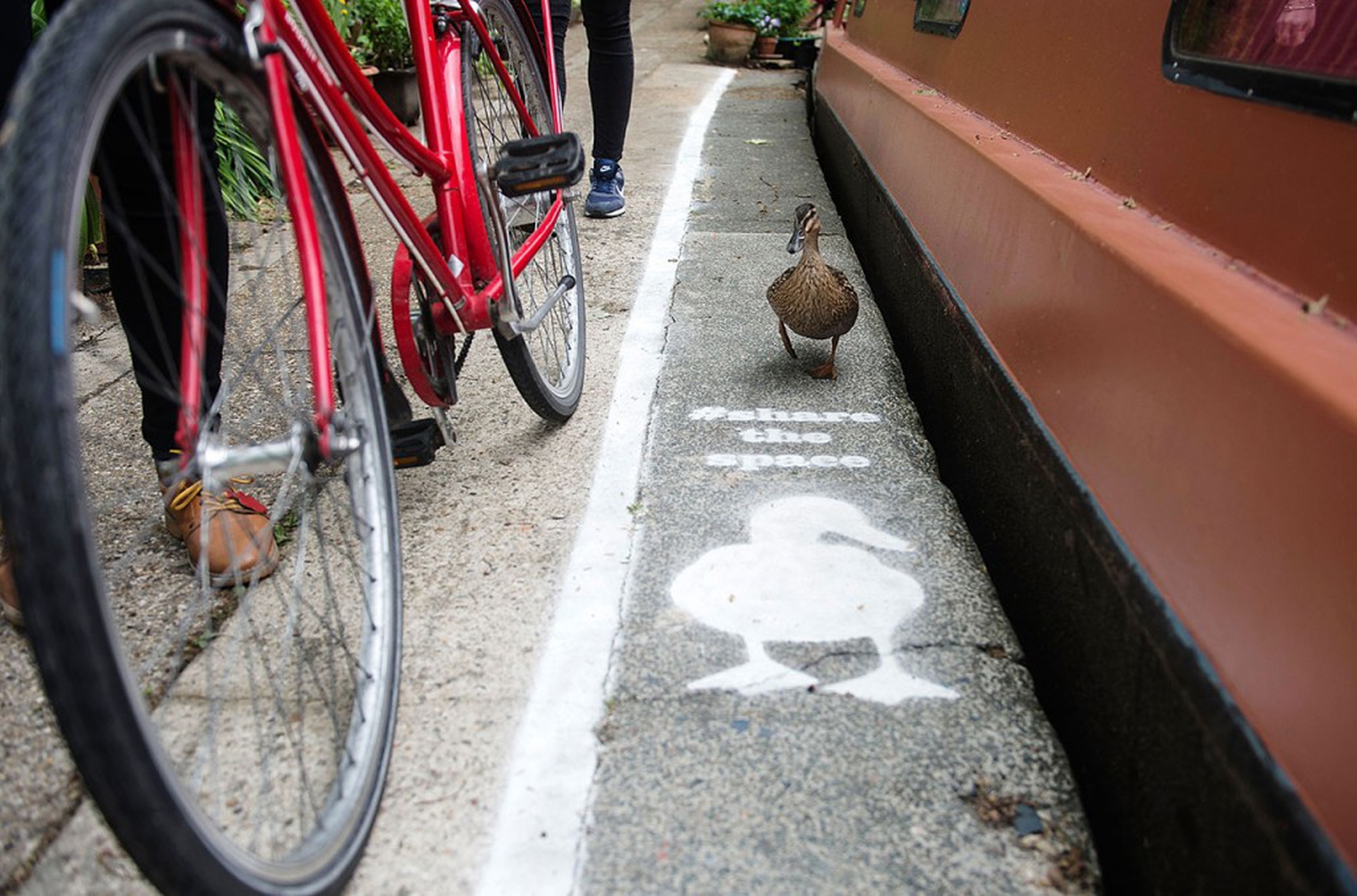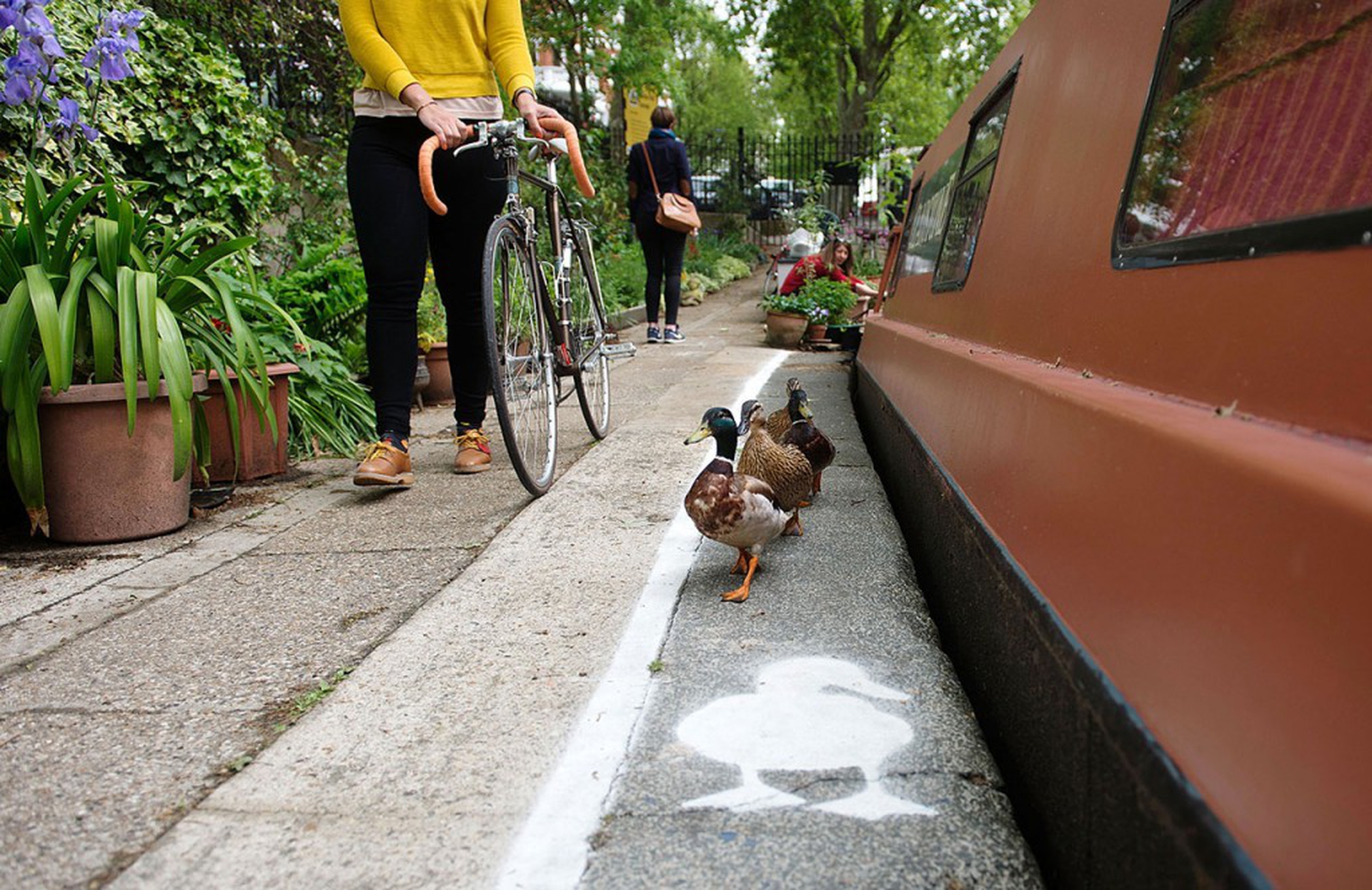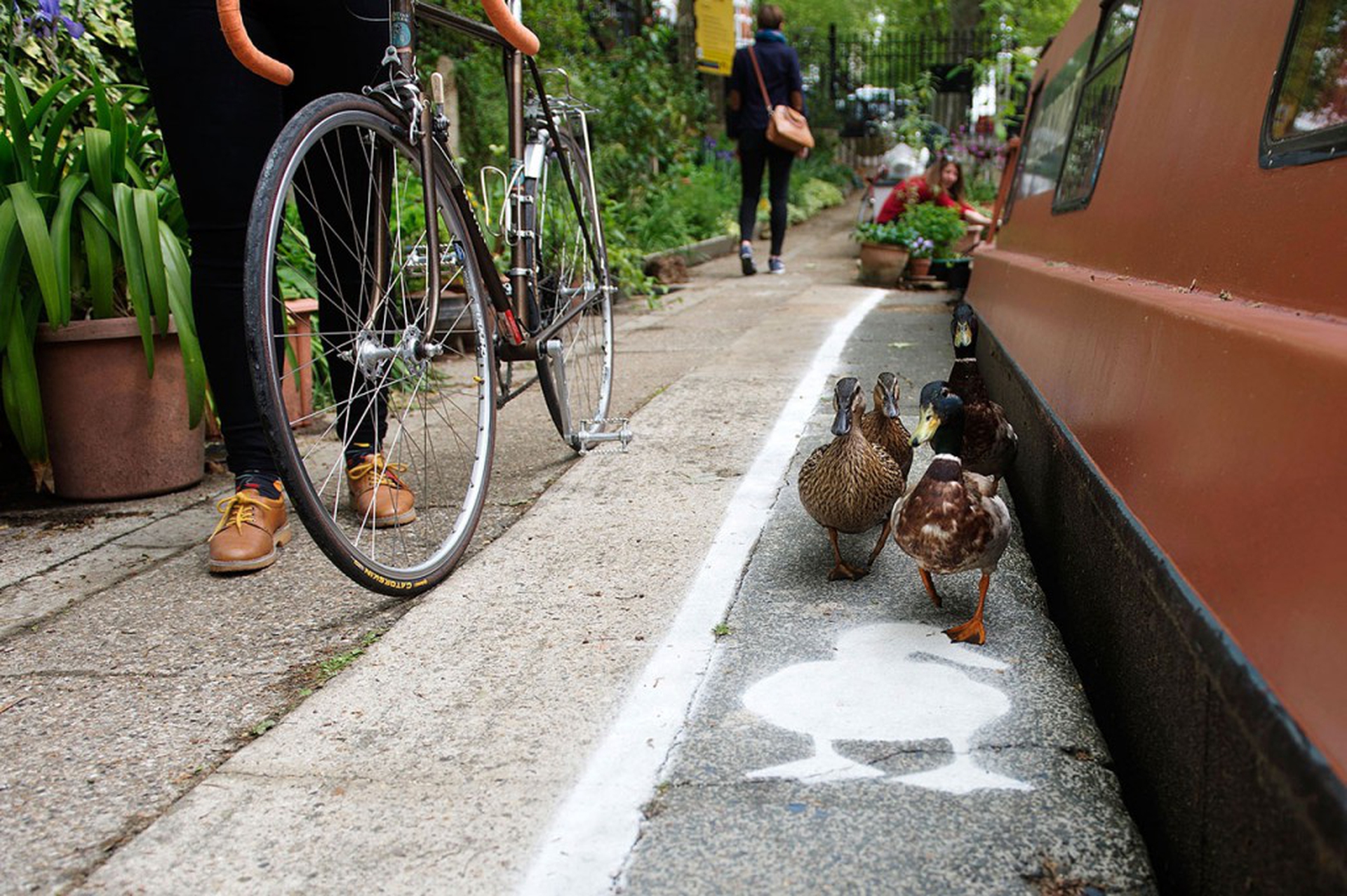Forget about cycling lanes. Now, the new era of sustainable mobility begins with duck lanes. If once drivers should pay attention to cyclists, now cyclists and absent-minded pedestrians listening to music must have consideration of and share the space on British canals with those feathered animals. Many temporary lanes have been painted on
Forget about cycling lanes. Now, the new era of sustainable mobility begins with duck lanes. If once drivers should pay attention to cyclists, now cyclists and absent-minded pedestrians listening to music must have consideration of and share the space on British canals with those feathered animals.
![anatra-3]()
Many temporary lanes have been painted on busy towpaths in London, Birmingham and Manchester to make room for ducks. The campaign is called Share the Space, Drop your Pace and was launched by Canal & River Trust an association that maintains a network of over three thousand km of towpaths winding across the UK, on the cry of “Better towpaths for everyone”.
Duck lanes have a symbolic function because obviously these birds cannot maintain the right position within the lines: they were designed to encourage people to remember that they are not the masters of the road.
Translated by Francesca Clemente
Siamo anche su WhatsApp.
Segui il canale ufficiale LifeGate per restare aggiornata, aggiornato sulle ultime notizie e sulle nostre attività.

Quest'opera è distribuita con Licenza Creative Commons Attribuzione - Non commerciale - Non opere derivate 4.0 Internazionale.

